Peugeot 2008 vs Volvo XC60 - Differences and prices compared
Costs and Efficiency:
When it comes to price and running costs, the biggest differences usually appear. This is often where you see which car fits your budget better in the long run.
Peugeot 2008 has a significantly advantage in terms of price – it starts at 24500 £, while the Volvo XC60 costs 49200 £. That’s a price difference of around 24729 £.
Fuel consumption also shows a difference: Volvo XC60 manages with 2.80 L and is therefore clearly more efficient than the Peugeot 2008 with 4.90 L. The difference is about 2.10 L per 100 km.
As for range, the Peugeot 2008 performs clearly better – achieving up to 406 km, about 324 km more than the Volvo XC60.
Engine and Performance:
Power, torque and acceleration say a lot about how a car feels on the road. This is where you see which model delivers more driving dynamics.
When it comes to engine power, the Volvo XC60 has a decisively edge – offering 455 HP compared to 156 HP. That’s roughly 299 HP more horsepower.
In acceleration from 0 to 100 km/h, the Volvo XC60 is significantly quicker – completing the sprint in 4.90 s, while the Peugeot 2008 takes 8.30 s. That’s about 3.40 s faster.
In terms of top speed, the Peugeot 2008 performs to a small extent better – reaching 206 km/h, while the Volvo XC60 tops out at 180 km/h. The difference is around 26 km/h.
There’s also a difference in torque: Volvo XC60 pulls decisively stronger with 709 Nm compared to 270 Nm. That’s about 439 Nm difference.
Space and Everyday Use:
Whether family car or daily driver – which one offers more room, flexibility and comfort?
Seats: offers more seating capacity – vs .
In curb weight, Peugeot 2008 is significantly lighter – 1263 kg compared to 1900 kg. The difference is around 637 kg.
In terms of boot space, the Volvo XC60 offers slightly more room – 483 L compared to 434 L. That’s a difference of about 49 L.
In maximum load capacity, the Volvo XC60 performs hardly perceptible better – up to 1543 L, which is about 76 L more than the Peugeot 2008.
When it comes to payload, Volvo XC60 slightly takes the win – 550 kg compared to 447 kg. That’s a difference of about 103 kg.
Who comes out on top?
Overall, the Volvo XC60 shows itself to be offers a more balanced package and secures the title of DriveDuel Champion.
It convinces with the more balanced overall package and proves to be the more versatile choice for everyday use.
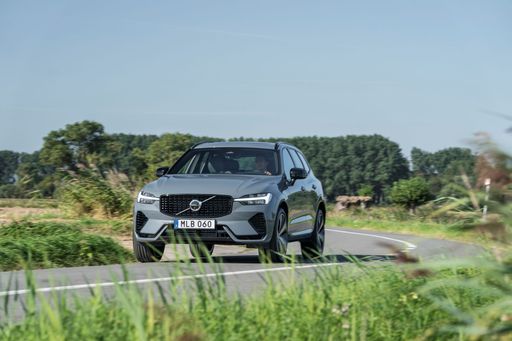 @ Volvo Cars
@ Volvo Cars
Volvo XC60
Costs and Consumption
View detailed analysis
Engine and Performance
View detailed analysis
Dimensions and Body
View detailed analysis
Peugeot 2008
The Peugeot 2008 is a stylish, city-friendly crossover that packs big character into a compact package, turning mundane errands into a mildly entertaining drive. Its clever interior layout, polished looks and confident ride make it a smart choice for buyers who want practical daily sense with a touch of flair.
details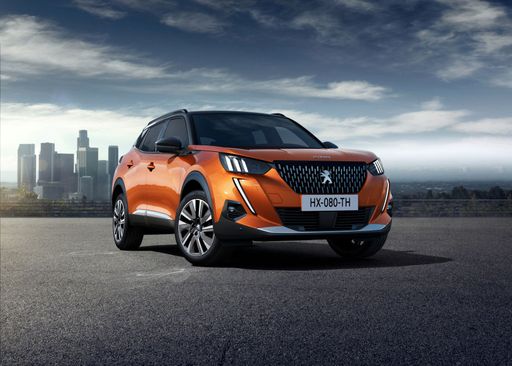 @ Peugeot / Stellantis Media
@ Peugeot / Stellantis Media
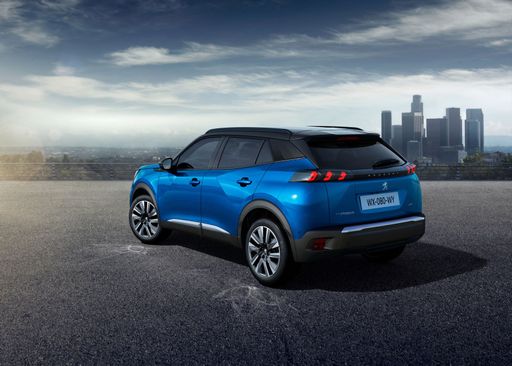 @ Peugeot / Stellantis Media
@ Peugeot / Stellantis Media
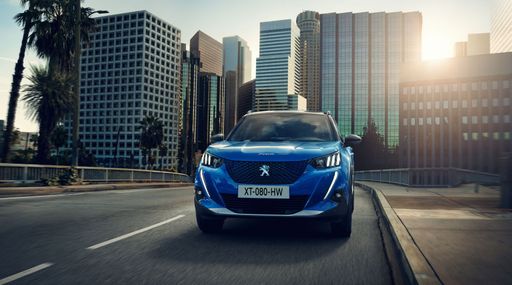 @ Peugeot / Stellantis Media
@ Peugeot / Stellantis Media
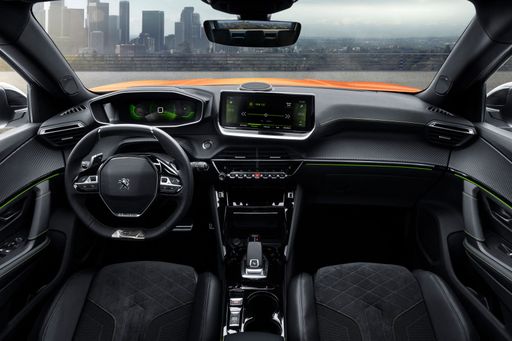 @ Peugeot / Stellantis Media
@ Peugeot / Stellantis Media
Volvo XC60
The Volvo XC60 blends Scandinavian calm with confident presence, offering a cabin that feels plush without shouting for attention. It’s a smart pick for buyers after a composed ride, clever practicality and thoughtful safety touches — it even makes running the family shuttle feel almost serene, which is a small miracle.
details @ Volvo Cars
@ Volvo Cars
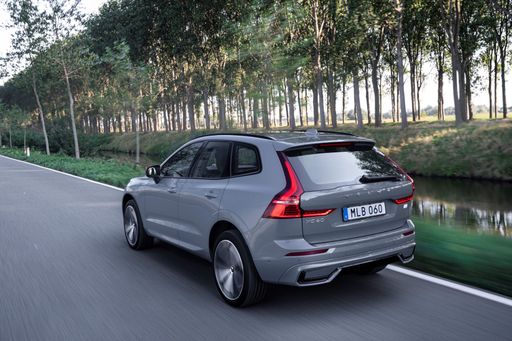 @ Volvo Cars
@ Volvo Cars
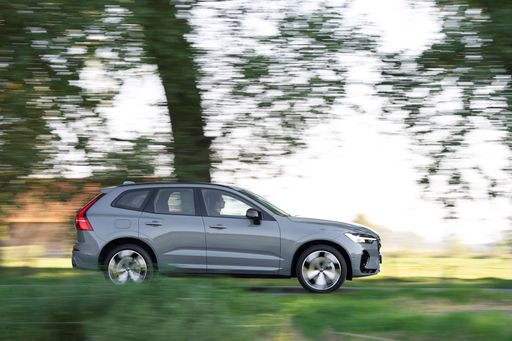 @ Volvo Cars
@ Volvo Cars
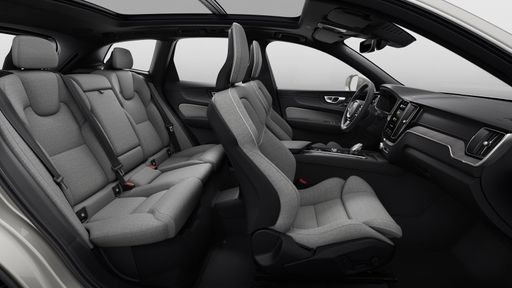 @ Volvo Cars
@ Volvo Cars
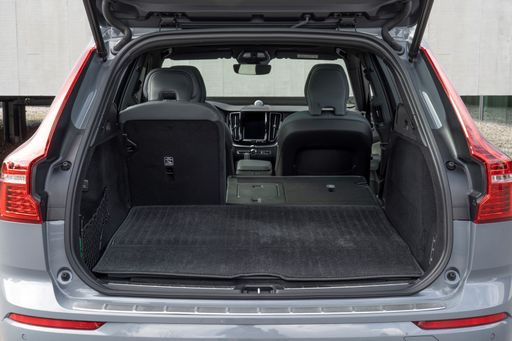 @ Volvo Cars
@ Volvo Cars
 @ Peugeot / Stellantis Media
@ Peugeot / Stellantis Media
|
 @ Volvo Cars
@ Volvo Cars
|
|
|
|
Costs and Consumption |
|
|---|---|
|
Price
24500 - 40300 £
|
Price
49200 - 75100 £
|
|
Consumption L/100km
4.9 - 5.7 L
|
Consumption L/100km
2.8 - 7.5 L
|
|
Consumption kWh/100km
15.50 kWh
|
Consumption kWh/100km
-
|
|
Electric Range
406 km
|
Electric Range
74 - 82 km
|
|
Battery Capacity
51 kWh
|
Battery Capacity
14.70 kWh
|
|
co2
0 - 129 g/km
|
co2
64 - 169 g/km
|
|
Fuel tank capacity
44 L
|
Fuel tank capacity
71 L
|
Dimensions and Body |
|
|---|---|
|
Body Type
SUV
|
Body Type
SUV
|
|
Seats
5
|
Seats
5
|
|
Doors
5
|
Doors
5
|
|
Curb weight
1263 - 1623 kg
|
Curb weight
1900 - 2150 kg
|
|
Trunk capacity
434 L
|
Trunk capacity
468 - 483 L
|
|
Length
4304 mm
|
Length
4708 mm
|
|
Width
1770 mm
|
Width
1902 mm
|
|
Height
1523 mm
|
Height
1651 - 1655 mm
|
|
Max trunk capacity
1467 L
|
Max trunk capacity
1528 - 1543 L
|
|
Payload
407 - 447 kg
|
Payload
510 - 550 kg
|
Engine and Performance |
|
|---|---|
|
Engine Type
Petrol, Electric, Petrol MHEV
|
Engine Type
Petrol MHEV, Plugin Hybrid
|
|
Transmission
Manuel, Automatic
|
Transmission
Automatic
|
|
Transmission Detail
Manual Gearbox, Reduction Gearbox, Dual-Clutch Automatic
|
Transmission Detail
Automatic Gearbox
|
|
Drive Type
Front-Wheel Drive
|
Drive Type
All-Wheel Drive
|
|
Power HP
101 - 156 HP
|
Power HP
250 - 455 HP
|
|
Acceleration 0-100km/h
8.3 - 10.9 s
|
Acceleration 0-100km/h
4.9 - 6.9 s
|
|
Max Speed
150 - 206 km/h
|
Max Speed
180 km/h
|
|
Torque
205 - 270 Nm
|
Torque
350 - 709 Nm
|
|
Number of Cylinders
3
|
Number of Cylinders
4
|
|
Power kW
74 - 115 kW
|
Power kW
184 - 335 kW
|
|
Engine capacity
1199 cm3
|
Engine capacity
1969 cm3
|
General |
|
|---|---|
|
Model Year
2023 - 2025
|
Model Year
2025
|
|
CO2 Efficiency Class
D, A, C
|
CO2 Efficiency Class
F, B
|
|
Brand
Peugeot
|
Brand
Volvo
|
Is the Peugeot 2008 offered with different drivetrains?
The Peugeot 2008 is available as Front-Wheel Drive.
The prices and data displayed are estimates based on German list prices and may vary by country. This information is not legally binding.
